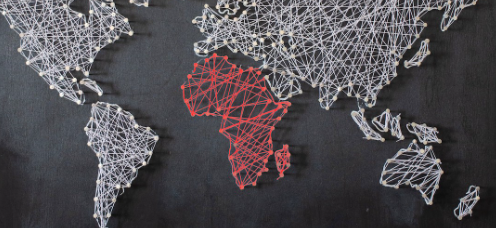CURRENT AFFAIRS UNIT, RADIO KWARA, ILORIN
PROGRAMME: NEWS COMMENTARY
DATE OF BROADCAST: 30/9/88 AT 1810 HOURS
WRITER: LANRE KAWU
African peoples and their causes, have never been at the positive end of media attention. This is especially so, of the powerful monopolies of the Western world. During the years of the 1960s, when Africans entered the world stage, as independent actors from newly free nations, the so-called free press of the Western world, openly expressed fears about the ability of Africans to take their rightful places in the comity of nations.
What has always attracted prompt international attention, from Africa, have been coups d’etat, the murders of presidents, droughts, inter-tribal warfares, national disasters and related phenomena. Our attempts to master this continent, the efforts to break the vicious cycle of underdevelopment, the struggles for national liberation, titanic class battles of the African working people, are at best ignored, or at least, derided, ridiculed or outrightly, condemned.
The past few years have witnessed unprecedented economic, social and natural dislocations in Africa. As the various societies groan under heavy burdens of debt, and populations become restive, so have the racist biases and imperialist worldview of the Western media, become so strident. It was within this context, that the newly-freed countries of Africa, Asia and Latin America, launched a campaign for a New International Information Order, in the last decade. The struggle for a New International Information Order, challenged the oligopoly enjoyed by the Western news agencies, and the Western domination of the circulation of news and ideas.
In the words of the former Director-General of UNESCO, Ahmadou Mahtar M’bow, it was to counter “the systematic conditioning of minds and mentalities by information which is conceived and produced by people who are not only sometimes ignorant of Third World realities, but who also consider the Third World should think and see things in a certain way”. The misreporting of the Third World, and Africa in particular, must therefore be seen in relationship with the control that the imperialist agencies have over information and ideas. Eighty percent of international information disseminated on radio and TV, and in the press, is from the big agencies: UPI, A.P., AFP, and Reuters, and all are from the imperialist centres. We also know too well, that imbalance in information and news flow, is a reflection and outcome of a larger imbalance found in economic relations.
So, from the colonial period to date, our relationships with the imperialist world, have largely been to the detriment of our peoples. Our resources, our labour power, have contributed to the gigantic strides made in the advanced capitalist countries. On the other hand, our people have continued to be plundered, they suffer unemployment, poverty and starvation. It is these basic inequities that the Western press have sought to obscure. It is the essential logic that helps us to understand their opposition to a New International Information Order, a demand that was always dialectically connected with the demand for a new economic order.
Has the struggle for a new order run out of steam? No doubts, the past few years have witnessed stiff opposition to the basic demands of the movement. The Reagan administration in Washington, Margaret Thatcher in Great Britain, and such conservative outfits like the Heritage Foundation of America, have launched tirades against the UNESCO, where the whole debate was actively promoted. But as the present situations of our countries become more desperate, in the face of the aggressive designs of imperialism to strangulate us, so has the urgency of the call for a New International Information Order become.
Truthful information about the struggles of Africa against imperialism, is part and parcel of human rights, which is at the focus of international attention, in this 40th year anniversary of the Universal Declaration of Human Rights. If we lose the battle for democratic access to information flow, we stand great risks of the erosion of the very fabric of the cultural values and aspirations of Africa.


